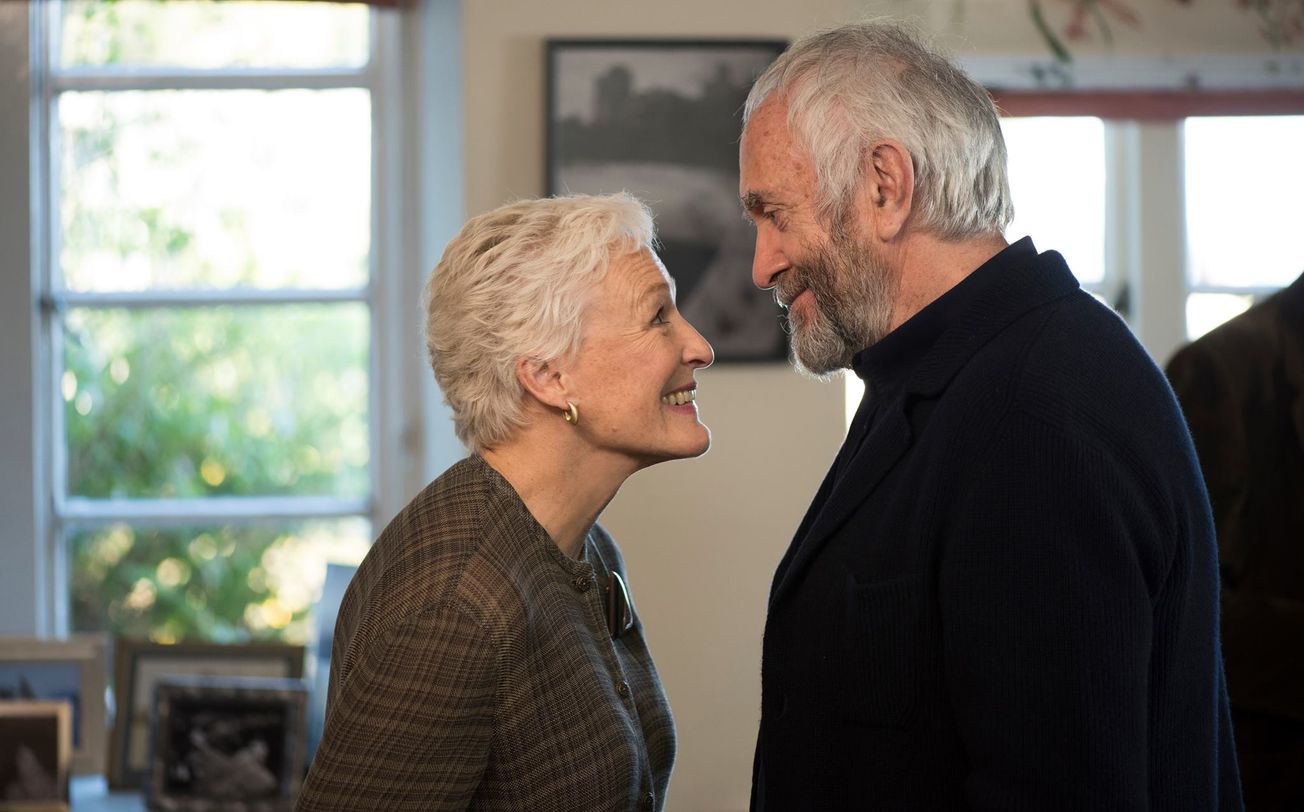By Lara Kelly, Second Year English
Glenn Close’s character Joan Castleman is a wife who shies away from the limelight, or rather, lets her husband have it instead.
YouTube / Sony Pictures Classics
Set in 1991, the film joins the couple in Stockholm where her husband Joe (Jonathan Pryce) is receiving the Nobel Prize for Literature. The spotlight could not be brighter on Joe, with lectures and newspaper coverage galore. Joan tags along to these events as a half-visible shadow.
On their arrival, her husband is received with the simpering pomp and grandeur of a literary genius. Joan meanwhile smiles tellingly when she is reassured that shopping trips will be arranged for ‘the wives’. To begin with, it seems like a film about what it is like to be the wife of a ‘great man’. The unappealing title of The Wife certainly suggests this. However, this film is much greater in its scope.
The film sets about to question the simplistic title. One of the most revealing moments is when Joan wearily asks Joe to spare her the ‘long suffering wife speech’ when he goes up for his prize. We are all familiar with this moment at award ceremonies, when the director at the podium selflessly turns the limelight onto his wife, and thanks her for her forbearance and for humouring him when he’s up late working.
The Wife, which I watched yesterday, is...it’s a good film. It’s quiet, subtle, and devastating, especially the way it shows the pain of being a writer, the pain of being a woman overshadowed and ignored by men, and the amalgamation of the two.
— jenny.dpz (@listento_yousay) 4 October 2018
Twitter / @listento_yousay
Joan shares this saint-like devotion, but her dedication seems out of place to a husband who is so blatantly undeserving. Joe pursues his photographer at the event and he has had a string of affairs that have left Joan deeply wearied. The film begs the question: are Joan’s unrelenting efforts to assist her husband the efforts of a three-dimensional character, or does her character embody an unrealistic fantasy of the devoted wife?
Joe and Joan’s relationship is unequal from the start; when they meet he is her professor. The discordant music around their early relationship suggests something troubling about their interest in each other, not least that Joe is married at the time. The younger Joe lacks the lackadaisical affability of his older self, and is even sinister at times.
When they are young, Joan’s attempts to criticize Joe’s work are met with threatening censure by him. However, the danger the score really warns us of is the threat to Joan’s talent; she is about to be robbed of it. Firstly by Joe, who, as her professor, gets to decide whether her work is valuable or not. And then by the world: in a pained speech by the prodigal female writer at her college, wonderfully played by Elizabeth McGovern, she is told not to bother with a writing career, because publishers don’t take women seriously.
The works of women writers are left to gather dust on the ‘alumni shelf’. Joan’s personal acclaim is certainly left behind there. Years later, Joe inaccurately declares to a fellow Nobel Prize Winner that Joan ‘never writes’. Whilst his frail ego cannot be satisfied with any prize less than the highest in the land, Joan must play a secondary role, and watch her talent die. What is demeaning about the long-suffering trope is clear: she has spent too much of her life defined by her husband’s achievements.
With 6 prior nominations, it seems Glenn Close may be getting closer to finally winning a deserved Oscar for her new film, The Wife. Here's to her magnetic performances in Fatal Attraction, The Big Chill, and - of course - 101 Dalmatians.
— Park Circus (@ParkCircusFilms) 28 September 2018
Twitter / @ParkCircusFilms
Glenn Close plays the suffering part of long-suffering subtly; Joan’s true feelings are kept mysterious despite intrusive close-ups and a camera that rarely fails to observe her changing facial expression. With each striking flashback, we learn more about her and our assumptions are shown to be baseless. But Close also manages to create a warm and likeable Joan. The most enjoyable scene is when she talks to biographer Nathaniel and she is able for a moment to relax the stilted mechanics of ‘the public wife’.
This is a film about the complexities that underlie a cliché. There have been in history many women like Joan whose husbands are held up as paragons of their field, while their personal ambitions are set aside. However, a twist complicates this even more, and makes for an extremely satisfying viewing experience.
Close has more Oscar nominations without a win than any other living actor. It is strangely fitting that this ‘long suffering wife’ role may allow her to write a speech of her own.
Featured Image: Facebook / The Wife
Will Glenn Close finally strike Oscars gold for her role in The Wife? Or does someone else deserve it more?
Facebook // Epigram Film & TV // Twitter







